It is unfortunate that the most important statement made so far at the on-going Annual Conference of the Nigeria Bar Association, an outright derogation of the supremacy of the rule of law, has not yet generated any coherent response from either the Bar or the Bench. President Muhammadu Buhari was guest of honour on Sunday at the NBA Conference and he had the additional responsibility of declaring the Conference open. In his address, he told the gathering of eminent lawyers and judges that his administration will prioritise national security over and above the rule of law.
The “rule of law” often sounds like a catchy phrase among lawyers, and there have been so many confusing interpretations of it, especially by politicians, compelling Martin Kettle to advise in The Guardian UK, of November 25, 2006, that “we need leaders who better understand the rule of law.” Kettle is right because here is what President Buhari reportedly said: “….Rule of law must be subject to the supremacy of the nation’s security and national interest. Our apex court has had cause to adopt a position on this issue in this regard and it is now a matter of judicial recognition that where national security and public interest are threatened or there is a likelihood of their being threatened, the individual rights of those allegedly responsible must take second place, in favour of the greater good of society…”
Politicians often get away with their own convenient interpretations of the rule of law because of the kind of acquiescent, self-denigrating reception that President Buhari received at the NBA event. The President had just invoked before an audience of officers in the temple of justice, the spirit of the notorious Decree 2 of 1984, and can you imagine? : They all clapped! The Chief Justice of the Federation, Walter Onnoghen would later mention the independence of the judiciary, but nobody thought it necessary to give some talk about the Supremacy of the Rule of Law. The President even dabbled into case law, by referring to some subsisting decisions or judicial recognition of the Supreme Court. Politicians are closet lawyers, of course: the ones who have attended one election tribunal or the other often forget themselves and try to play around with legalism. But it is scandalous for lawyers and the judex to applaud a statement, which clearly erodes the doctrine of the separation of powers, the independence of the judiciary and the general principles of constitutionalism.
Before I go any further, let me state that I am fully aware that because of the popularity of the phrase, “the rule of law”, it has also been grossly misapplied, prompting Professor Akin Oyebode to argue in an essay titled ” From the rule of law to the rule of just law” (1994), that perhaps we should be more concerned about the “abuse of the rule of law” and argue for just law, because the rule of law can only make sense when it is rooted in “substantive and distributive justice”, more so as the “rule of law” has become “a harlot at the disposal of everyone.” President Buhari rather than turn national security into a fetish, must be more concerned about justice. It is only when justice is done that the “greater good of society” can be realised.
The doctrine of rule of law can be traced back to the Greek philosopher, Aristotle, but it is often associated with Professor A.V. Dicey who in 1885 provided three basic outlines for understanding it: (1) no man can be punished except under the law and before ordinary courts of the land. That is: You can only be punished according to an established law, not the whims and caprices of government or an individual (2) no man is above the law, and every man is equal before the law, be he king or plebeian and (3) the general principles of the constitution as interpreted by the courts shall prevail. In summary, therefore, the rule of law is about fairness, justice, equality, due process, accountability, impartial application of the law and proper administration of justice. Whatever other interpretations or conventions may have governed Dicey’s original clarification in other jurisdictions, there seems to be a universal meeting of minds to the effect that the rule of law is paramount. Where there are no laws, what you’d find is the rule of men. Thomas Hobbes identifies this as “a state of nature” where cruelty, nastiness and brutishness could be the order of the day. Indeed, any attempt to define the rule of law outside the province of justice, is a journey towards a state of anarchy as defined by Hobbes, or at best, what Lord Hailsham calls “elective dictatorship”.
Thus, when President Buhari stood before Nigerian judges and lawyers, and told them that the rule of law is not as important as national security, he was not talking about “justice”, he was talking about “power and might”. He was saying that regardless of what the courts may say, the government reserves the right to take decisions bordering on personal freedoms and rights in the interest of national security. In 1984 as a military Head of State, General Muhammadu Buhari as he then was, pushed this same conviction through a notorious Decree 2. The judex of the time, the Supreme Court of Fatayi-Williams, Oputa, Eso, Obaseki, Irikefe, Bello, Karibi-Whyte, Nnaemeka-Agu, Uwaifo, Ayoola – and lawyers like Gani Fawehinmi, Abraham Adesanya, Kanmi Osobu resisted the violation of the rule of law by the military dictatorship that emerged. In 2018, every reasonable person must insist that the rule of law is superior to national security, and where there must be a restriction of fundamental rights, only a court of law can so pronounce, not the President, not any of his agents, no matter how highly placed.
In other jurisdictions, the statement made by President Buhari would ordinarily have earned him an objection from the office of the Attorney General. The disagreement between President Trump and the former head of the Federal Bureau of Investigation (FBI) James Comey is all about the rule of law, the latter’s attempt to defend and protect it in the people’s interest, and the former’s attempt to bend the law to his own will. It is the same with the current Attorney General of the United States, Jeff Sessions who has been most critical and dismissive of President Donald Trump. Sessions insists, like Comey that his loyalty is to the rule of law and the people of the United States and not to the whims and caprices of a certain Trump. The President insists that he gave Sessions the job because he expects him to be loyal. You may not like Mr. Sessions’ abrasiveness but you cannot fault him on the grounds of principle.
In our case, Abubakar Malami, SAN owes us, the Nigerian people, a higher loyalty by ensuring that the government of the day does not turn national security into a scarecrow for violating human rights. It is this same bogey that is used to intimidate the media and all voices of opposition in society. But it is sad that at some point, Nigeria’s present Attorney General also had cause to express the same sentiments that President Buhari put on the table before the NBA. He was probably speaking from the mouth of the Attorney General and if this is true, then it is a tragedy.
Tom Bingham, Lord Chief Justice of England and Wales (as he then was) defines the rule of law by identifying certain abuses of it. He writes; “The hallmarks of a regime which flouts the rule of law are, alas, all too familiar: the midnight knock on the door, the sudden disappearance, the show trial, the subjection of prisoners to genetic experiment, the confession extracted by torture, the gulag and the concentration camp, the gas chamber, the practice of genocide or ethnic cleansing, the waging of aggressive war. The list is endless.” Characteristically, every dictator’s excuse for these violations of human rights is national security or national interest. Jones Abiri, a journalist, was arrested and detained for two years, without trial, under this administration – going by the new logic, for national security reasons. When the man was released after much public outcry, he looked as if he had been taken through an experiment.
Colonel Sambo Dasuki (rtd.), the country’s former National Security Adviser (NSA) has been granted bail by the courts six times; the West African Court has also upheld his right to fair hearing and asked that he should be granted bail, but the Nigerian government has refused to obey the courts. The leader of the Shi’ites Movement, Ibrahim el-Zakzaky, and his wife, have been in detention for more than a year. The leader of the Indigenous Peoples of Biafra movement (IPOB) was smoked out of his residence one fateful day, like a rabbit. His whereabouts remain unknown to date. Radio stations have been demolished, media owners have been told to be careful, The President talks tough. His foot-soldiers leave no one in doubt that they are in charge and they are ready and willing to use power.
The Constitution of Nigeria is an expression of the sovereignty of the people of Nigeria and the basis for the rule of law. There can be no higher law above it, only the courts can interpret it and determine cases accordingly, including matters related to national security. When the executive arm of government takes it upon itself to determine what constitutes national security or national interest, it commits the error of acting as the judge in its own cause. This is contrary to all norms of a good society, including the body of laws on war, not even in a war situation is an individual’s rights allowed to be brazenly violated. And say what you will, Nigeria is not at war. The Supreme Court was referred to by President Buhari, and I urge their Lordships to remember the words of Justice Samson Uwaifo, who has been described by Professor Ben Nwabueze as “a great judge and one of the ablest judges that ever sat in the Supreme Court”. On the occasion of his retirement on 24 January 2005, Uwaifo JSC spoke about “judicial uprightness” and “the manipulative dimension prevalent in our socio-political environment” and he concluded: “The Supreme Court must always demonstrate, even more than ever in such atmosphere, that it can neither bend nor break”. I rest my case.
II.
A distress call from Ghana
I got a frantic call from Ghana the other day. It was from Lillian. The Ghanaian authorities were shutting down shops belonging to Nigerian traders at the Kwame Nkrumah Circle in Accra. The Inter-Governmental Task Force set up by the Government of Ghana to regulate retail trade had arrested about 50 Nigerians. Many of them were detained. “The situation is not good at all, someone needs to come to their rescue; ” she said.
This is not a new matter. Across Africa, the Nigerian trader is often resented by the local population, on the grounds that Nigerians are either taking over their businesses or their women. But the reported attack on Nigerians in Ghana is most disturbing. Both countries share many affinities: historical, cultural, political and social. Nigerians love to go to Ghana. It is less than an hour away by air and it is a stable, organised society.
Since the reversal of fortunes between both countries, with the Ghanaians who used to flock to Nigeria in the 70s and 80s, now enjoying better prosperity, Nigerians are now the ones going to Ghana in droves in search of economic opportunities or a place to enjoy some sanity, away from the maddening crowd at home. Given our people’s enterprising spirit, it is not unexpected that Nigerians will dominate the retail market in any country where they are allowed to settle in large numbers.
In 1994, Ghana introduced a law called Ghana Investment Promotion Centre Act (GIPCA), Section 19(3) of which says “in the case of trading enterprise involving only the purchasing and selling of goods, which is either wholly or partly owned by a non-Ghanaian, there shall be an investment of foreign capital or its equivalence in goods worth at least $300, 000 by way of equity capital and the enterprise shall employ at least 10 Ghanaians.” Non-Ghanaians are also required to have a residence permit and a business permit. In the past six years, the Ghana Union of Traders Association (GUTA) has been urging the GIPC to take action against foreigners involved in retail business in Ghana who they accuse of pushing them out of business. There are over 1, 000 retail shops owned by non-Ghanaians across Ghana, most of them by Nigerians. Aggrieved Ghanaian traders want those shops shut down.
In June, the GIPC issued a notice asking the foreigners to obey the provisions of the GIPC Act or close down their shops by July 27. Most of the Nigerian retailers cannot afford $300, 000 – in Naira, that is about N108 million! The businesses they run do not need up to ten staff. These are people selling phones, textiles, electronics, or recharge cards or engaged in some other small-scale enterprise in the markets. Whereas the Ghanaian government has said the law is not targeted at Nigerians, the truth is that Ghana does not want foreigners in the retail business. Foreigners are not allowed to drive taxis in Ghana or run kiosks.
Ghana’s trade protectionism raises a question: how far can an ECOWAS member-state go in protecting the sovereign interests of its nationals in the context of binding ECOWAS protocols? The governments of Ghana and Nigeria should take the on-going development seriously and prevent a breakdown of people-to-people diplomacy. In Kumasi, members of the Ghanaian Traders Association reportedly attacked Nigerian traders and the latter are also threatening to retaliate. It shouldn’t get to that.












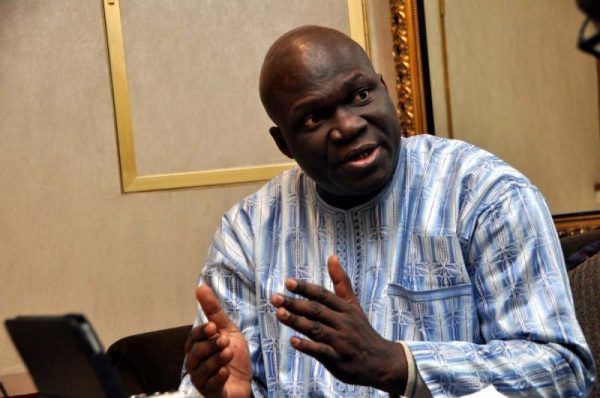

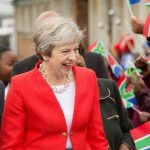
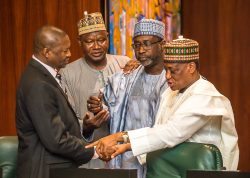




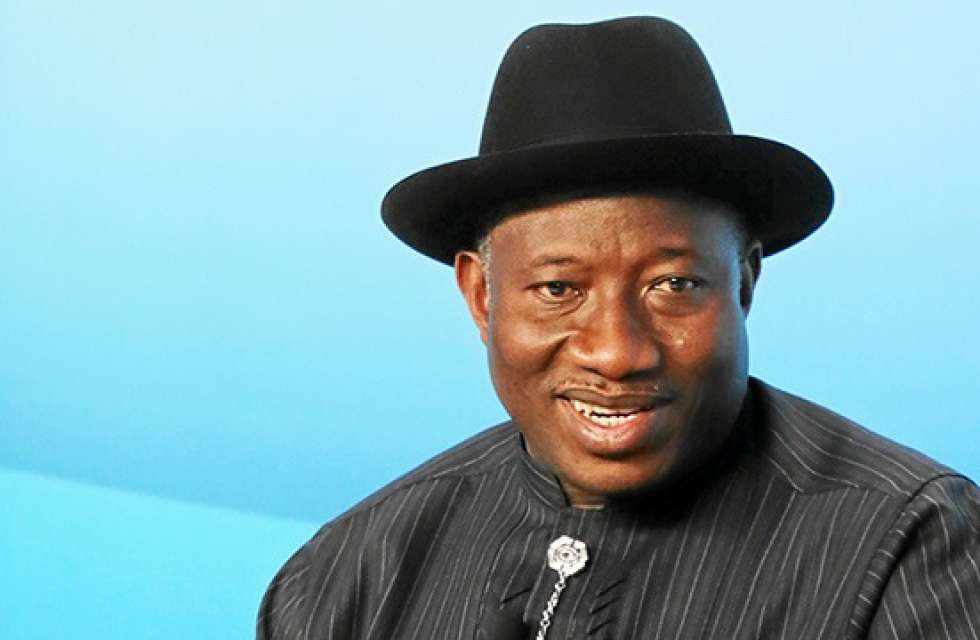
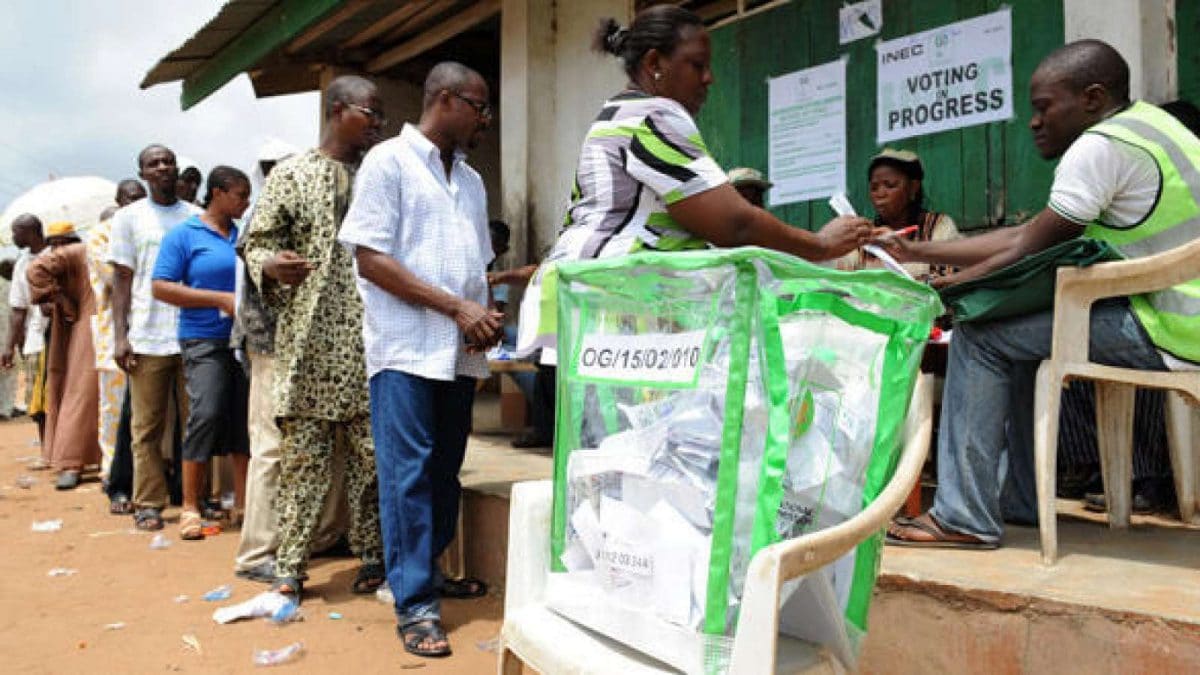
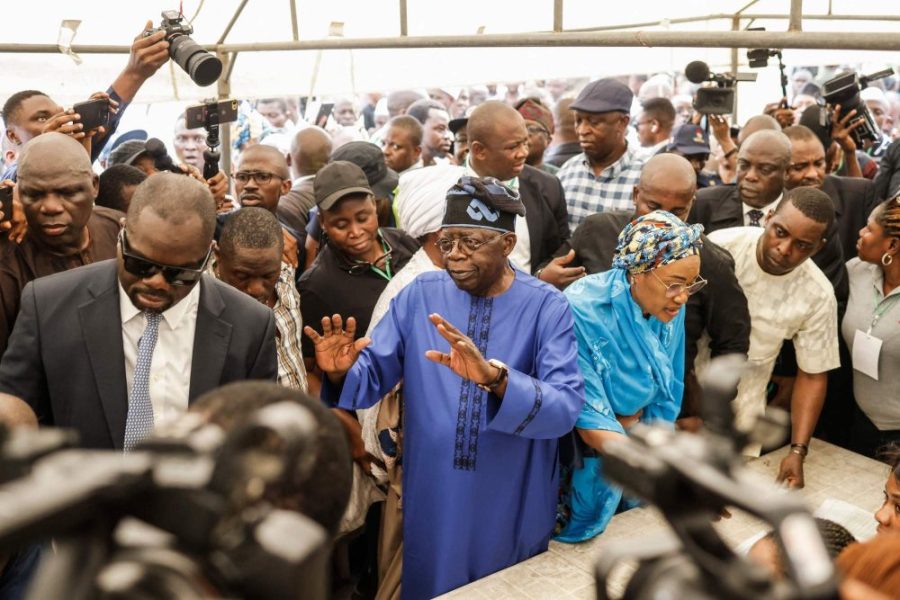
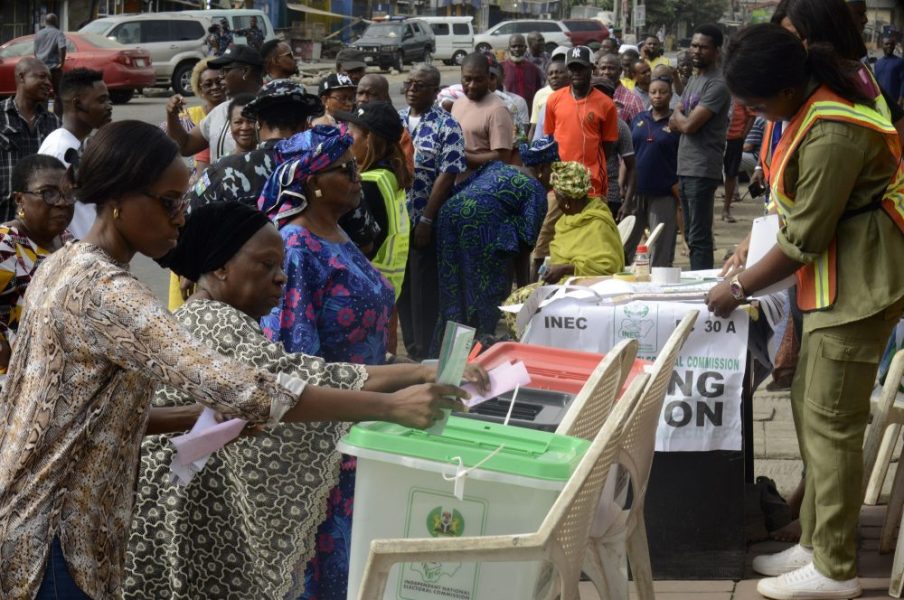
Leave a comment